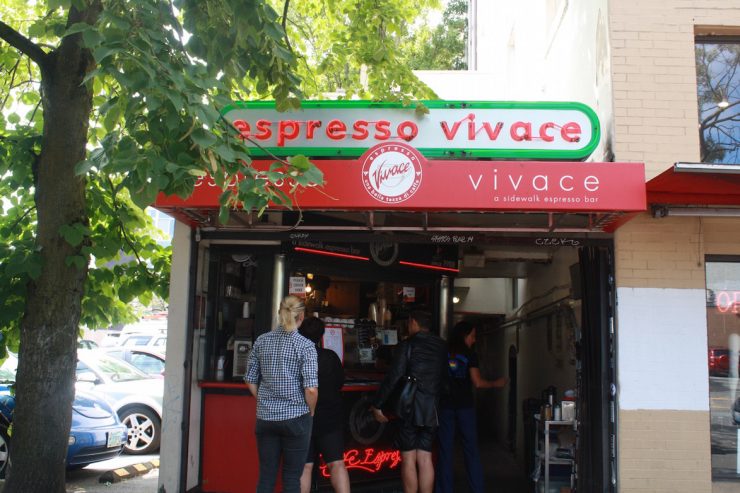
In Seattle, the venerable roaster shoulders that the city’s many cafes stand on mostly have names that start with a “V”. Follow the breadcrumb trail through the streets of Capitol Hill and you’ll find Vita and Victrola, but today we’re stopping at Espresso Vivace, the more than 25-year-old coffee company owned by David Schomer, once described as “an odd prophet for the coffee set.” Schomer sat down with Sprudge to talk about how Vivace has become a stalwart, what’s planned for his forthcoming roastery and espresso training center, and the move that almost shut his doors.
David Schomer is at his best when in his comfort zone, which happens to be about a mile wide. “I am not happy in meetings, on the phone, and stressed out with expansion,” he says. “Of course, I’m very unhappy if there’s any bad espresso coming out of the machines. It’s been a series of revelations about how great the espresso can be that keeps pulling me forward.” Schomer admits he has “a very narrow range” and says, “when I’m in that range, I’m the happiest person you ever met. It’s my own weakness that is my strength.”
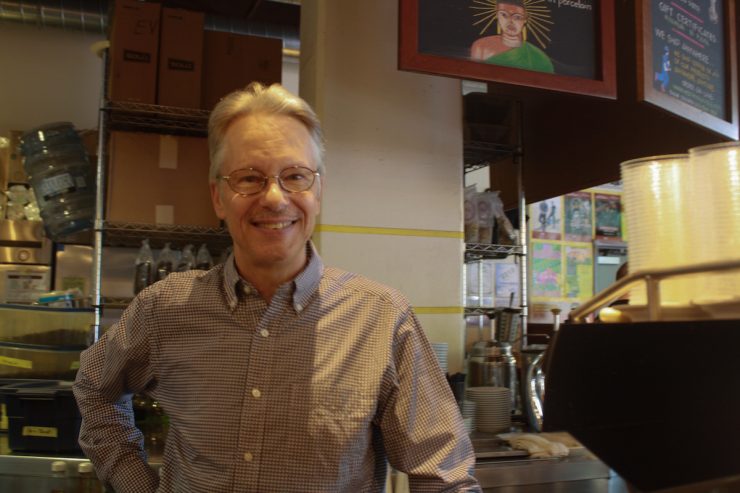
Which is why the cafe founder lives within easy walking distance to his three locations. Serving espresso unabashedly in the Italian style, the Vivace coffee cart opened for business in 1988. Each day, he makes the rounds to the iconic cart on Broadway, then further down the same street to his cafe on the ground floor of an apartment building, and to a third cafe in nearby South Lake Union. Vivace’s original, beloved brick-and-mortar, just off Broadway, closed in 2008 to make way for light rail.
A classically trained musician, Schomer says he launched Vivace because he wasn’t making a living as a flutist. “I opened the cart and I fell in love with the espresso process,” he says. “When I got in I was so excited, because I entered a field that outside of parts of Italy no one was really doing. I was very excited to write the first standard practice and see it go around the world.”
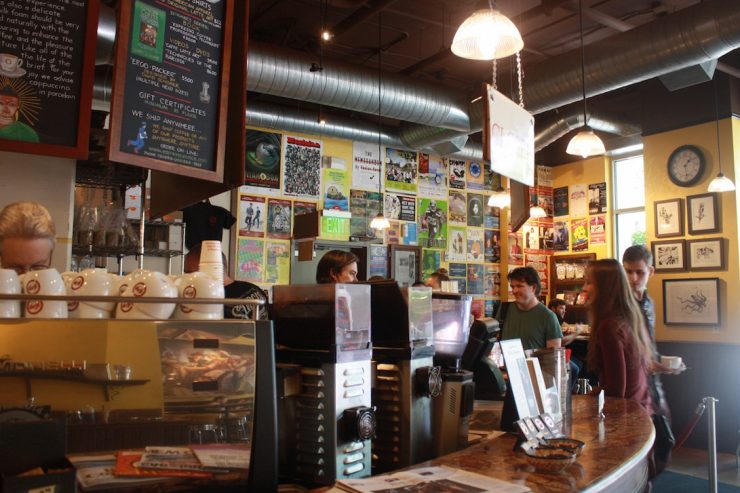
Schomer has high expectations for his staff, which is a common value found in most business owners. But he also has high expectations for his customers, and it’s a key to his staying power. “It has got to be appreciated on the other side of the counter. Because if it’s not, it all just falls apart in your hands,” he says.
“We’re in the customer pleasure business,” Schomer continues. “What we’re interested in is when someone comes into the door that they have a relaxing and lovely experience, because if they’re relaxed, they’re ready to taste,” Schomer says. “My places are designed as sanctuaries, first and foremost away from urban excitement and hassles. The service style that keeps them coming back we call compassionate listening. We listen and we look carefully at them to get little clues, how they’re doing, what would make this individual encounter go better.”
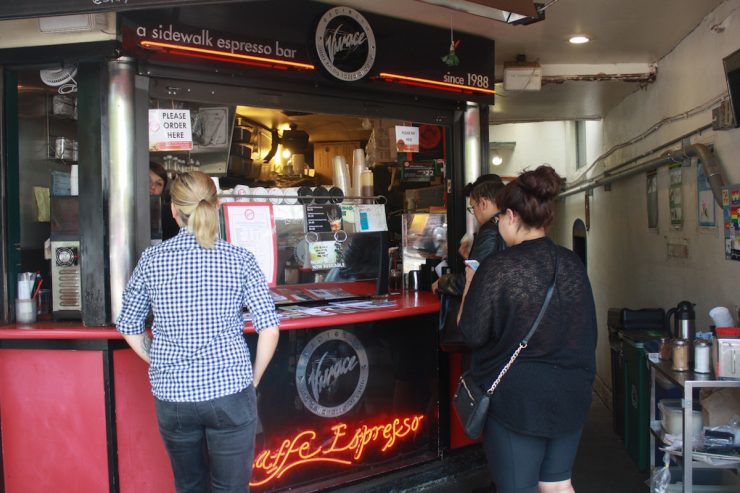
To describe the zeal of Vivace loyalists, Schomer recounts a “ski lift anecdote” he was told in 1991: “There were two people hanging in a ski lift in Switzerland. And they got in an argument about what was the best coffee in Seattle. And the one guy says, ‘It’s a cart.’ And the other one says, ‘No, no, no, it’s the little red place on Broadway.’ And they looked at each other and said, ‘It’s the same place! It’s Vivace!’”
Schomer says the low point for Vivace was when he operated a downtown cart on 5th and Union from 1988–1992. “The company was slipping through my fingers, I nearly lost the company,” he says. Tourists came once and didn’t return, and people working downtown were moving at a different pace. “It was a terrible series of events all based on the other side of the counter when there’s no appreciation,” Schomer says.
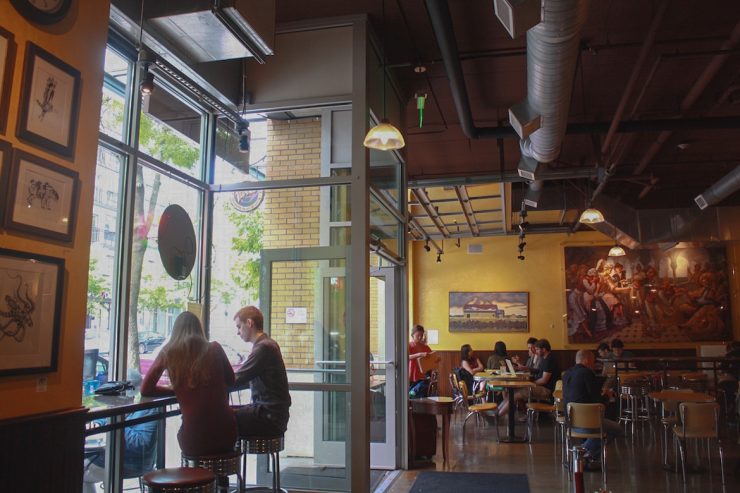
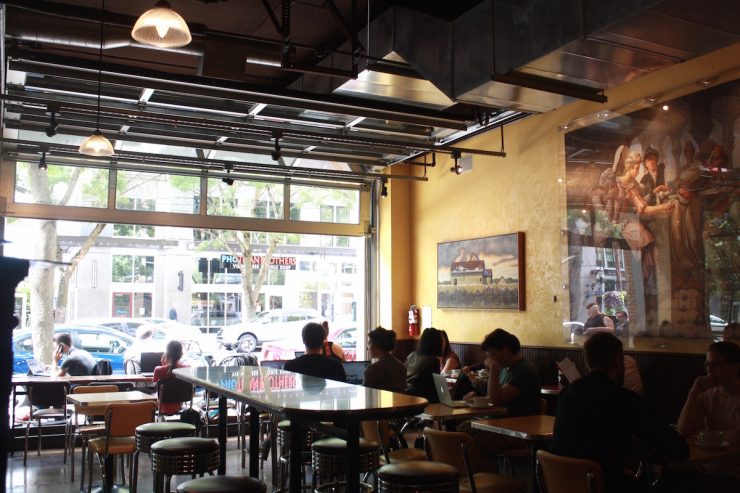
Schomer’s advice to aspiring or new members of the coffee industry centers around setting a high standard for work. “As an artist, [I am] in charge of the coffee. So I’m always pleasing myself,” he says. “There isn’t any committee to decide what tastes good.” But crediting his partner and ex-wife Geneva Sullivan for the accounting and payroll and taxes, he stresses the importance of having someone on staff who is mindful of not just making the best coffee but who orders napkins and stir sticks.
“I tell people if you’re going to do this and you have an artistic temperament, you must have someone who can mind the nuts and bolts and together you can do great things,” Schomer says. “So utter dedication and fidelity to the art—coupled with a really sound business partner.”
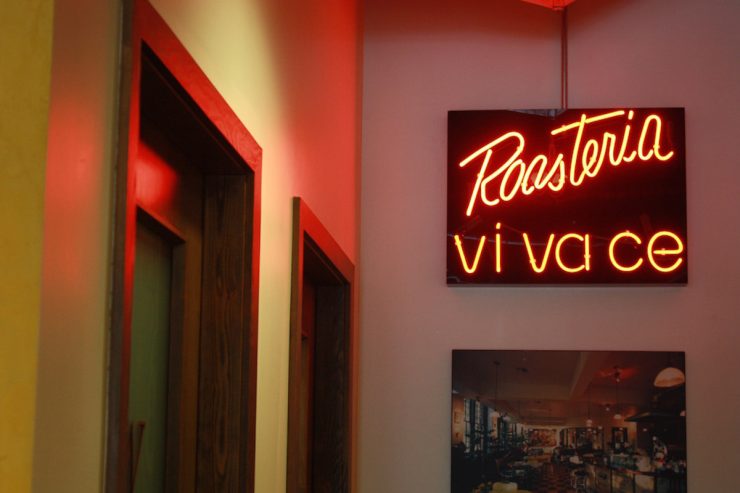
If the schedule keeps, a new 5,000-square-foot Vivace roastery and training center will open in January. Instead of finding a cheaper mortgage in a different neighborhood, he’s leasing a space. He signed on the more expensive dotted line in order to preserve his walking route. With the new roastery, Vivace will support a staff of 50, possibly bringing on new instructors. Schomer expects students to sojourn from China and South Korea for trainings, where his book “is huge.”
He’s also not in any hurry to open additional cafes and says, “I must admit I’m a little disappointed in my competitors. I haven’t met one that didn’t open and start expanding and expanding.” He cites Victrola and Analog (the latter of which uses beans from Herkimer) as promising examples of Seattle coffee getting it right and taking it slow. Instead of expansion, Vivace’s team is obsessed with the “infinite complexity” of coffee, from green beans and roasting to grinding and extraction, a technique Schomer says, “is literally almost a lifetime of study at this point.”
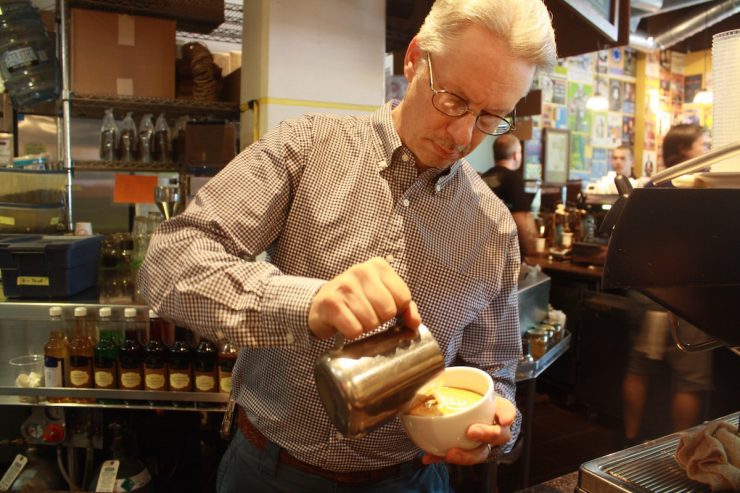
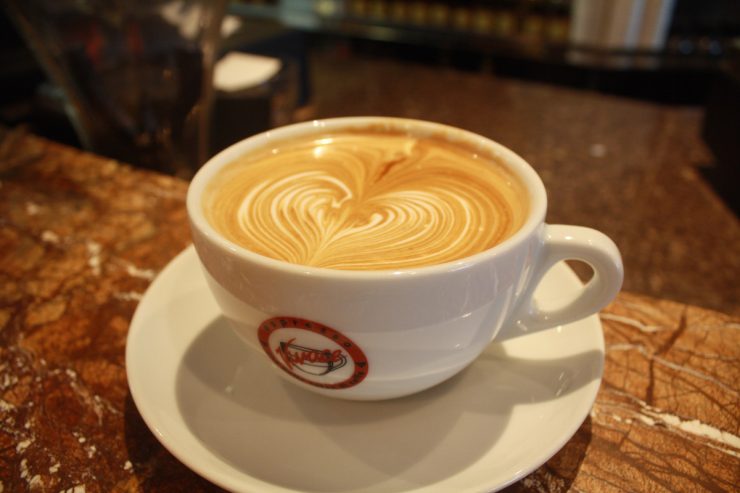
Espresso Vivace has multiple locations in Seattle.
Sara Billups (@hellobillups) is a Sprudge staff writer based in Seattle. Read more Sara Billups on Sprudge.
The post Seattle: The Infinite Complexity Of Espresso Vivace appeared first on Sprudge.

